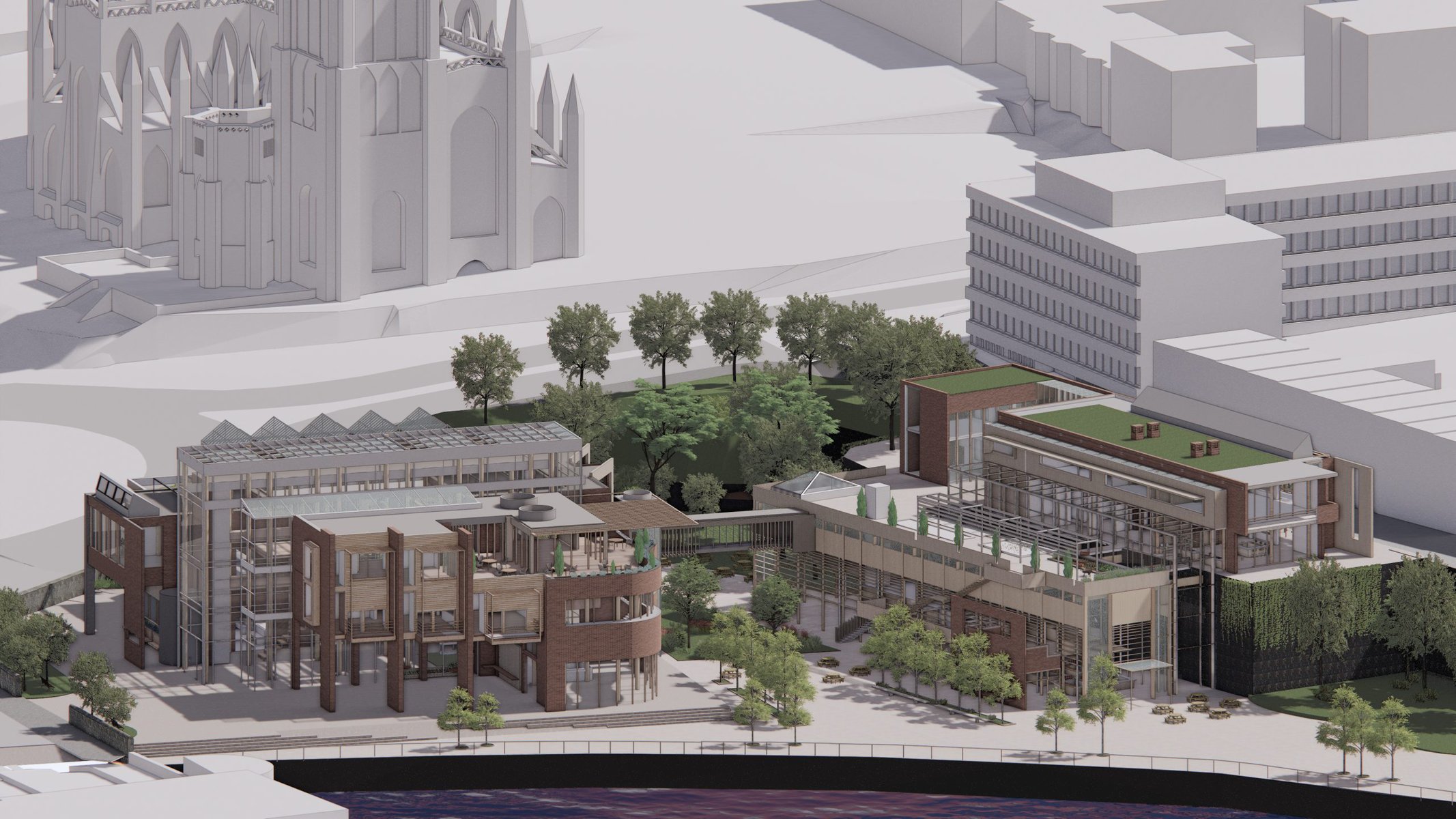Rooted in Renewal: Chloe Derbyshire’s Redcliffe Roots – Farm for Thought
An Urban Provocation for Sustainable City Living
It’s not every day an architecture graduate’s thesis wins over judges and capturing the attention of a broader urban conversation. But Chloe Derbyshire, a BArch graduate from the University of Nottingham, has achieved just that with her bold, multi-layered project “Redcliffe Roots – Farm for Thought.” This forward-thinking proposal reimagines the city not merely as a site for living, but as fertile ground for sustainable food production, social cohesion, and meaningful urban transformation.
A Graduate Vision Grounded in Place and Purpose
Chloe’s academic journey at the University of Nottingham is characterised by a nuanced understanding of cities—how their heritage, routes, and public spaces inform architectural responses. Throughout her studies, she developed a keen awareness of the delicate relationship between architectural interventions and the sites they inhabit. Her expertise shines brightest in her final-year thesis, where the interplay of urban design and holistic sustainability sits at centre stage.
At the most recent end-of-year show, Redcliffe Roots captured the imagination of peers and academics alike, earning an impressive four nominations and winning the coveted Urban Design and Context Prize. This recognition, along with commendations in the Part 1 Sustainability Award and Portfolio of the Year categories, cements Chloe’s standing as a leading voice among the next generation of environmentally conscious designers.
Designing at the Intersection of City and Agriculture
Redcliffe Roots tackles a profoundly timely question: how can urban communities meaningfully reconnect with their food sources while addressing the pressing demands of sustainable development? Nestled within the tapestry of Redcliffe—a historically rich urban quarter—the project envisions a vibrant agri-urban hub that fuses city life with modern farming innovation.
Drawing on the site’s dominant axial lines, Chloe designed a narrative of transition, physically and perceptually guiding people from urban density to lush green relief. At its heart is the reactivation of overlooked urban land, transforming it into productive spaces that challenge conventional boundaries between city and countryside.
Spatial Strategies: Weaving Urban Fabric and Green Infrastructure
One of the project’s most compelling aspects lies in Chloe’s sensitivity to the existing urban grain. Rather than impose a monolithic insertion, Redcliffe Roots harnesses the local topography, historic axes, and community rhythms. The scheme proposes a series of stepped platforms and interconnected green corridors, each calibrated to mediate between bustling streetscapes and tranquil farming enclaves.
Key features include modular hydroponic farms, community allotments, learning spaces, and a bustling market hall—each element layered to support food literacy, social enterprise, and ecological stewardship. Chloe’s attention to microclimates and orientation ensures that the design enhances both biodiversity and user comfort year-round, turning the project into a living system rather than a static showcase.
Sustainability at the Core: Beyond the Buzzword
Redcliffe Roots goes beyond superficial green gestures, embedding sustainability at every scale. Passive design principles inform building forms, maximising daylight, cross-ventilation, and thermal comfort. Rainwater harvesting and urban composting cycle nutrients onsite, while green roofs and vertical gardens elevate both environmental and aesthetic value.
Chloe’s ambition was to craft not just a sustainable development, but a catalyst—encouraging behavioural shifts among urban dwellers, policymakers, and the wider design community. The jury at Nottingham’s end-of-year show praised the project’s “rigorous holistic approach to sustainability, addressing environmental, social, and economic dimensions with equal care.”
Community Engagement and Educational Mission
A standout aspect of Chloe’s proposal is its social agenda. The farm is not a closed system reserved for experts but is radically open—offering workshops, tours, and shared meals that demystify the processes behind food production. By rooting education and outreach at the core, Redcliffe Roots aspires to close the gap between city residents and the agricultural heritage that sustains them.
Feedback from locals during the research phase revealed a shared yearning for green oases and meaningful community activity—desires that Chloe’s design seeks to answer. In doing so, Redcliffe Roots mirrors a growing global impetus toward food sovereignty, resilience, and urban well-being.
Looking Ahead: A Rising Talent to Watch
As cities face mounting environmental and social pressures, projects like Redcliffe Roots point the way forward—blending innovation, context sensitivity, and bold vision. Chloe Derbyshire’s thesis stands as proof that the future of architecture lies not just in constructing new icons, but in nourishing the cities we already inhabit.
Her work offers a blueprint for architects, urbanists, and city leaders alike: a testament to what’s possible when theory meets empathy, and design serves real, everyday needs. As Chloe looks ahead to the next stage of her career, her portfolio serves as both a calling card and a manifesto for regenerative urbanism.
Connect with Chloe Derbyshire
To discover more of Chloe Derbyshire’s work, discuss opportunities, or follow her next projects, you can connect on LinkedIn, join her creative journey on Instagram (@c.derbyarchitecture), or reach her directly via email at chloemayderbyshire@gmail.com.
Her journey is just beginning, but projects like Redcliffe Roots demonstrate the profound difference inspired, sustainable design can make—not just to skylines, but to communities and the everyday lives rooted within them.







Add a comment